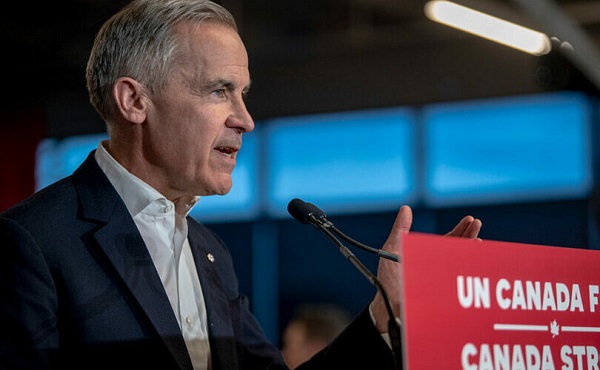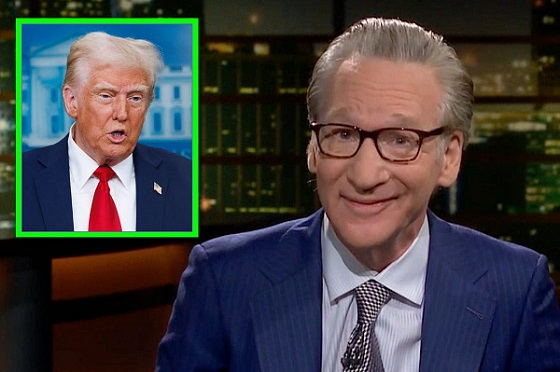Business
Time to unplug Ottawa’s EV sales mandates

From the Fraser Institute
With a federal election looming, a group of Canadian automobile associations want Ottawa to pull the plug on the Trudeau plan to mandate that all new light-duty vehicles sold in Canada be emission-free by 2035. The Canadian Vehicle Manufacturers’ Association, the Global Automakers of Canada and the Canadian Automobile Dealers Association collectively made the request after the government recently ended its incentive program, which included rebates of up to $5,000 for electric vehicle (EV) purchases. Quebec’s EV subsidies are also drying up.
Brian Kingston, head of the Canadian Vehicle Manufacturer’s Association, said the government’s mandate is now “increasingly unrealistic.” No doubt because Canadians remain reluctant to embrace EVs. According to recent report, while 48 per cent of Canadians will shop for a car this year (up from 42 per cent last year), only half (50 per cent) will consider EVs, down 2 per cent since last year.
Similarly, an Auto Trader survey finds that while almost half of non-EV owners are open to buying an EV for their next vehicle, interest in EVs declined for the second year in a row, from 68 per cent to 56 per cent. Things are somewhat rosier for plug-in hybrid vehicles, with purchase consideration for traditional gas-electric hybrids (HEVs) and plug-in hybrids (PHEVs) increasing.
Another 2024 report from J.D. Power finds that “Just 11% of new-vehicle shoppers in Canada say they are ‘very likely’ to consider an electric vehicle (EV) for their next purchase, down 3 percentage points from 2023.” And a recent report from RBC said a softening economy and inflation helped lead to only 28 per cent of Canadians considering an EV purchase in 2024, down from 47 per cent in 2022.
It’s increasingly clear that the Trudeau government’s vaunted EV revolution, where all new cars sold in 2035 are to be EVs, is unlikely to come to pass—particularly without large subsidies that the Trudeau government ended and that Donald Trump is dismantling in the United States. Neither Canadians nor Americans are particularly interested in buying EVs that come with high price tags and inferior performance compared to traditional internal combustion vehicles.
The next federal government—whoever that may be—should heed the call of Canada’s vehicle trade associations and pull the plug on the EV sales mandates for 2035. And allow automakers to plan for making vehicles consumers want now, and will likely still want in 2035.
Business
Musk Slashes DOGE Savings Forecast By 85%


From the Daily Caller News Foundation
By Thomas English
Elon Musk announced Thursday that the Department of Government Efficiency (DOGE) is now targeting $150 billion in federal savings for fiscal year 2026 — dramatically scaling back earlier claims of slashing as much as $2 trillion.
Musk initially projected DOGE would deliver $2 trillion in savings by targeting government waste, fraud and abuse. That figure was halved to $1 trillion earlier this year, but Musk walked it back again at Thursday’s Cabinet meeting, saying the revised $150 billion projection will “result in better services for the American people” and ensure federal spending “in a way that is sensible and fair and good.”
“I’m excited to announce we anticipate saving in FY ’26 from a reduction of waste and fraud a reduction of $150 billion dollars,” Musk said. “And some of it is just absurd, like, people getting unemployment insurance who haven’t been born yet. I mean, I think anyone can appreciate — I mean, come on, that’s just crazy.”
The announcement marks the latest in a string of revised projections from Musk, who has become the face of President Donald Trump’s aggressive federal efficiency agenda.
“Your people are fantastic,” the president responded. “In fact, hopefully they’ll stay around for the long haul. We’d like to keep as many as we can. They’re great — smart, sharp, finding things that nobody would have thought of.”
Musk originally floated the $2 trillion figure during campaign appearances last fall.
“I think we could do at least $2 trillion,” Musk said at the Madison Square Garden campaign rally in November. “At the end of the day, you’re being taxed — all government spending is taxation … Your money is being wasted, and the Department of Government Efficiency is going to fix that.”
By January, he softened expectations to a “really quite achievable” $1 trillion target before downsizing that figure again this week.
“Our goal is to reduce the deficit by a trillion dollars,” Musk told Fox News’ Bret Baier “Looked at in total federal spending, to drop the federal spending from $7 trillion to $6 trillion by eliminating waste, fraud and abuse … Which seems really quite achievable.”
DOGE’s website, which tracks cost-saving initiatives and contract cancellations, currently calculates total federal savings at $150 billion.
2025 Federal Election
Taxpayers urge federal party leaders to drop home sale reporting to CRA

Party leaders must clarify position on home equity tax
The Canadian Taxpayers Federation is calling on all party leaders to prove they’re against home equity taxes by pledging to immediately remove the Canada Revenue Agency reporting requirement on the sale of primary residences.
“Canadians rely on the sale of their homes to pay for their golden years,” said Carson Binda, CTF B.C. Director. “After the government spent hundreds of thousands of dollars flirting with home taxes, taxpayers need party leaders to prove they won’t tax our homes by removing the CRA reporting requirement.”
Right now, the profit you make from selling your home is exempt from the capital gains tax. However, in 2016, the federal government mandated that Canadians report the sale of their homes to the CRA, even though it’s tax exempt.
The Canada Mortgage and Housing Corporation also spent at least $450,000 to study and influence public opinion in favour of home equity taxes. The report recommended a home equity tax targeting the “housing wealth windfalls gained by many homeowners while they sleep and watch TV.”
“A home equity tax would hurt seniors saving for their golden years and make homes more expensive for younger generations,” Binda said. “If the federal government isn’t planning on imposing a home equity tax, then Canadians shouldn’t be forced to report the sale of their home to the CRA.”
-

 Business1 day ago
Business1 day agoCanadian Police Raid Sophisticated Vancouver Fentanyl Labs, But Insist Millions of Pills Not Destined for U.S.
-

 2025 Federal Election2 days ago
2025 Federal Election2 days agoTwo Canadian police unions endorse Pierre Poilievre for PM
-

 2025 Federal Election1 day ago
2025 Federal Election1 day ago‘Sadistic’ Canadian murderer claiming to be woman denied transfer to female prison
-

 2025 Federal Election23 hours ago
2025 Federal Election23 hours agoTaxpayers urge federal party leaders to drop home sale reporting to CRA
-

 2025 Federal Election2 days ago
2025 Federal Election2 days agoMark Carney vows to provide sterilizing puberty blockers to children ‘without exception’
-

 2025 Federal Election2 days ago
2025 Federal Election2 days agoCarney needs to cancel gun ban and buyback
-

 International10 hours ago
International10 hours agoBill Maher Breaks His Silence on His Private Meeting With President Trump
-

 Alberta3 hours ago
Alberta3 hours agoProvince introducing “Patient-Focused Funding Model” to fund acute care in Alberta








